PCUP
Product Development Design Studio 2
Politecnico di Milano
Project made with:
Davide Mammana
Pierre-Louis Soulié
2021

PCUP is a start-up company that aims to eliminate the use of disposable cups in pubs, bars and public events by offering a B2B sale and loan service of reusable smart cups made of silicone. Their cups contain an RFID tag that identifies them and, through a cloud-based platform, enables their management and the management, by the operator who adopts them, of the consumptions.

For this project we were asked to design a new version of the cup and a dispenser for their automatic distribution to the user. Through a questionnaire we understood the users' main needs and concerns regarding the use of a reusable cup during a public event and formulated a design brief.

Adding a lid and collapsability without affecting simplicity
The cup can be collapsed to reduce its size
The cup can be collapsed to reduce its size thanks to the concentric folds and the sloped middle section.
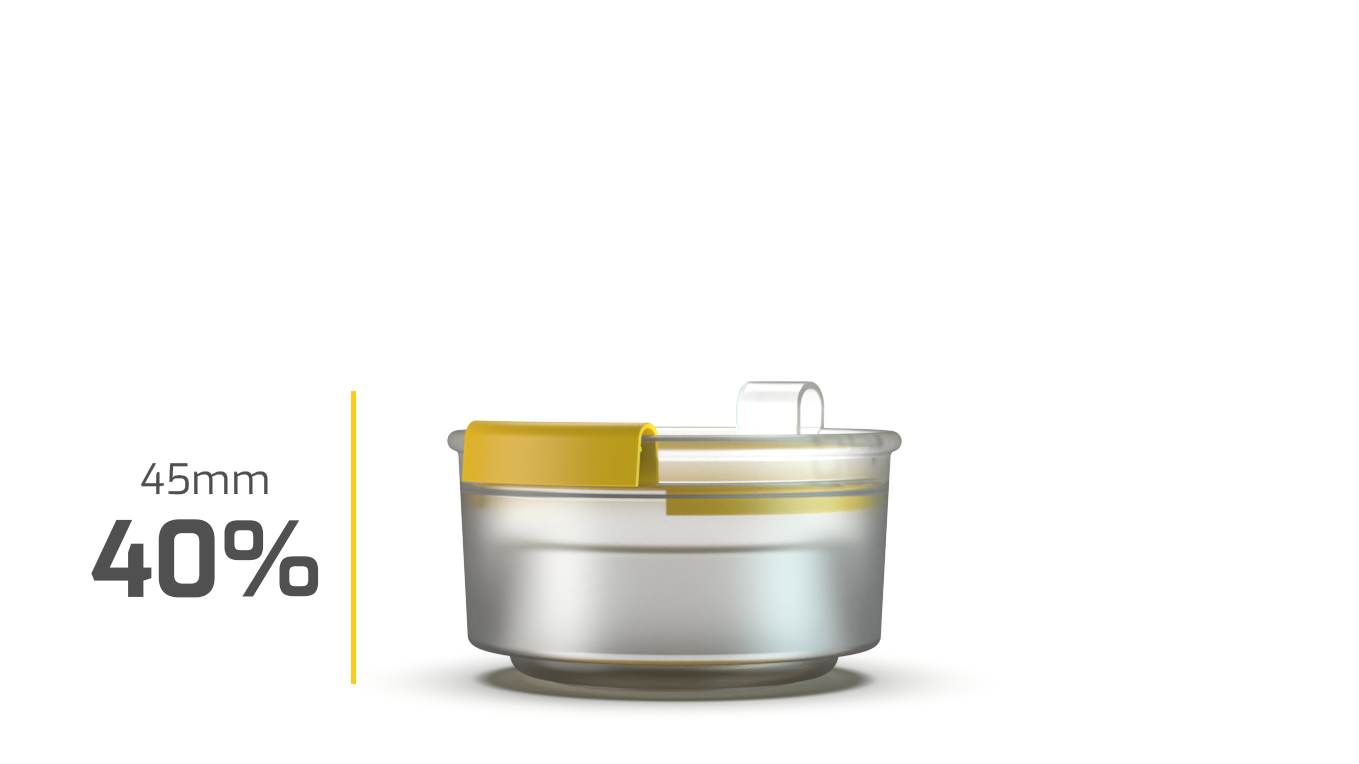
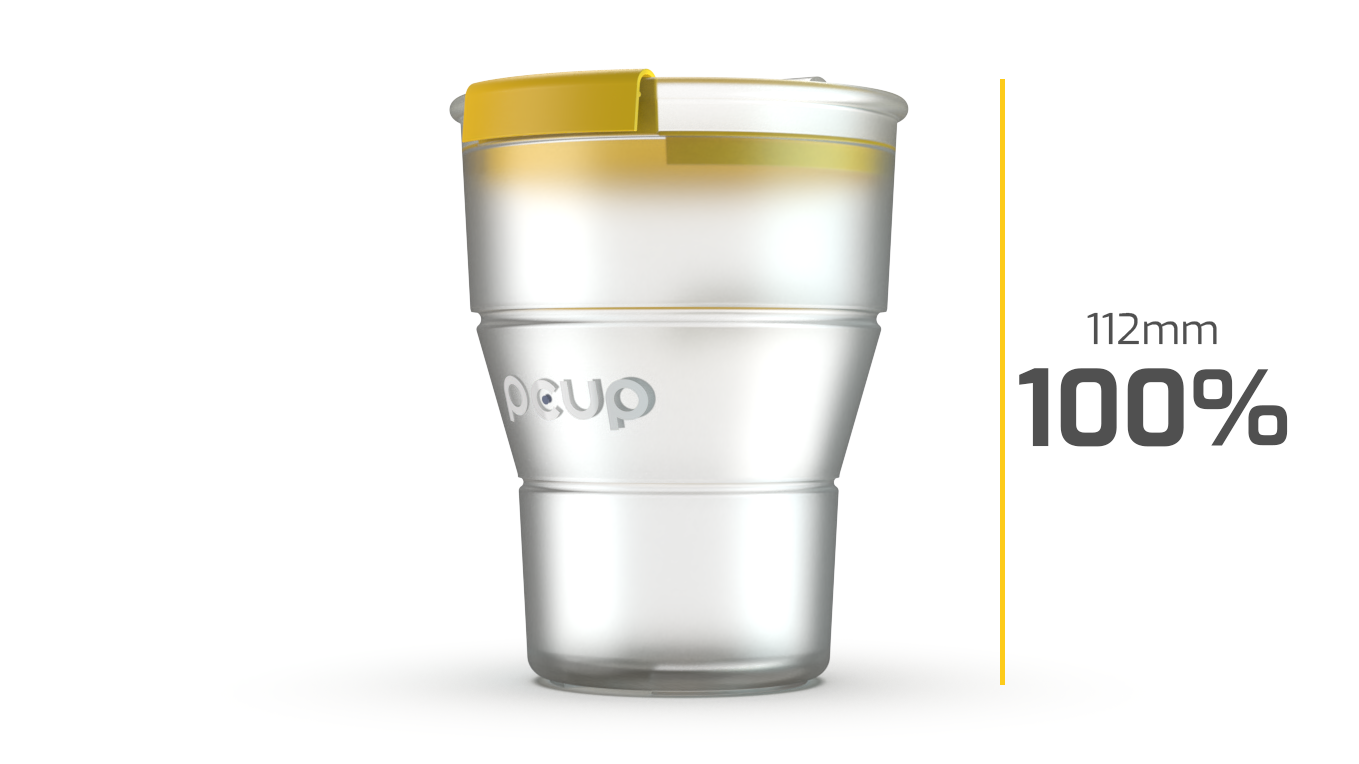
The lid is designed to protect the content inside and
the edge where the user would place the lips on.
The lid is designed to protect the content inside and
the edge where the user would place the lips on.
The tounge protects
the edge of the cup
while the user is not
drinking
To refill the cup,
the barman has to
open the entire lid
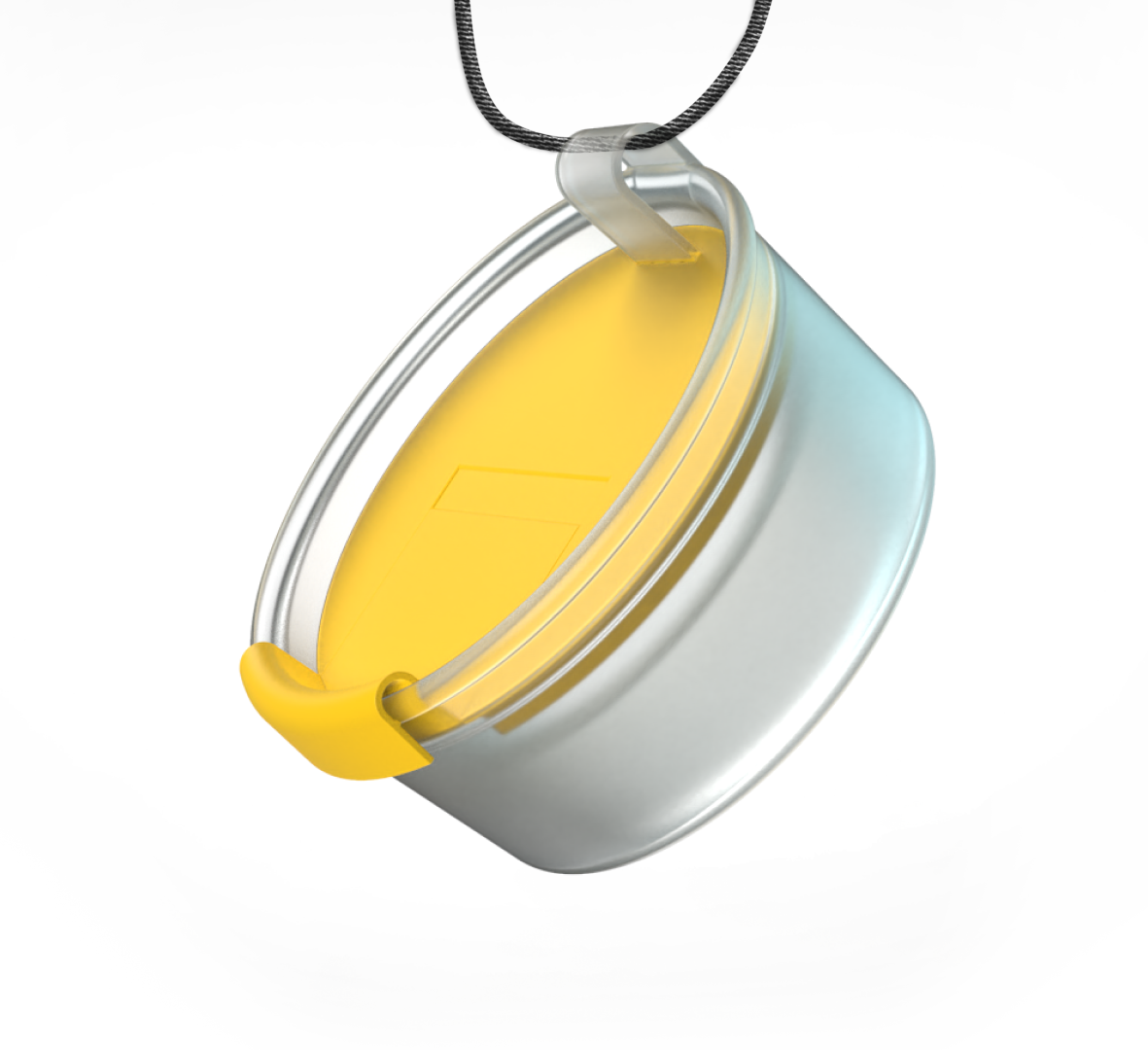
The silicone strap that holds the lid,
when this is closed, creates a loop for inserting a lace.
In this way the cup can be carried around the neck,
staying comfortable in situations such as a concert
or a standing event.


One product. Two functions.

The product performs two different activities depending on the direction the user is following.

The product performs two different activities depending on the direction the user is following.
Placed at the entrance of the event, this is the side that the user would immediately get in contact with. By scanning the QR code generated by the app, the dispenser drops the cup.
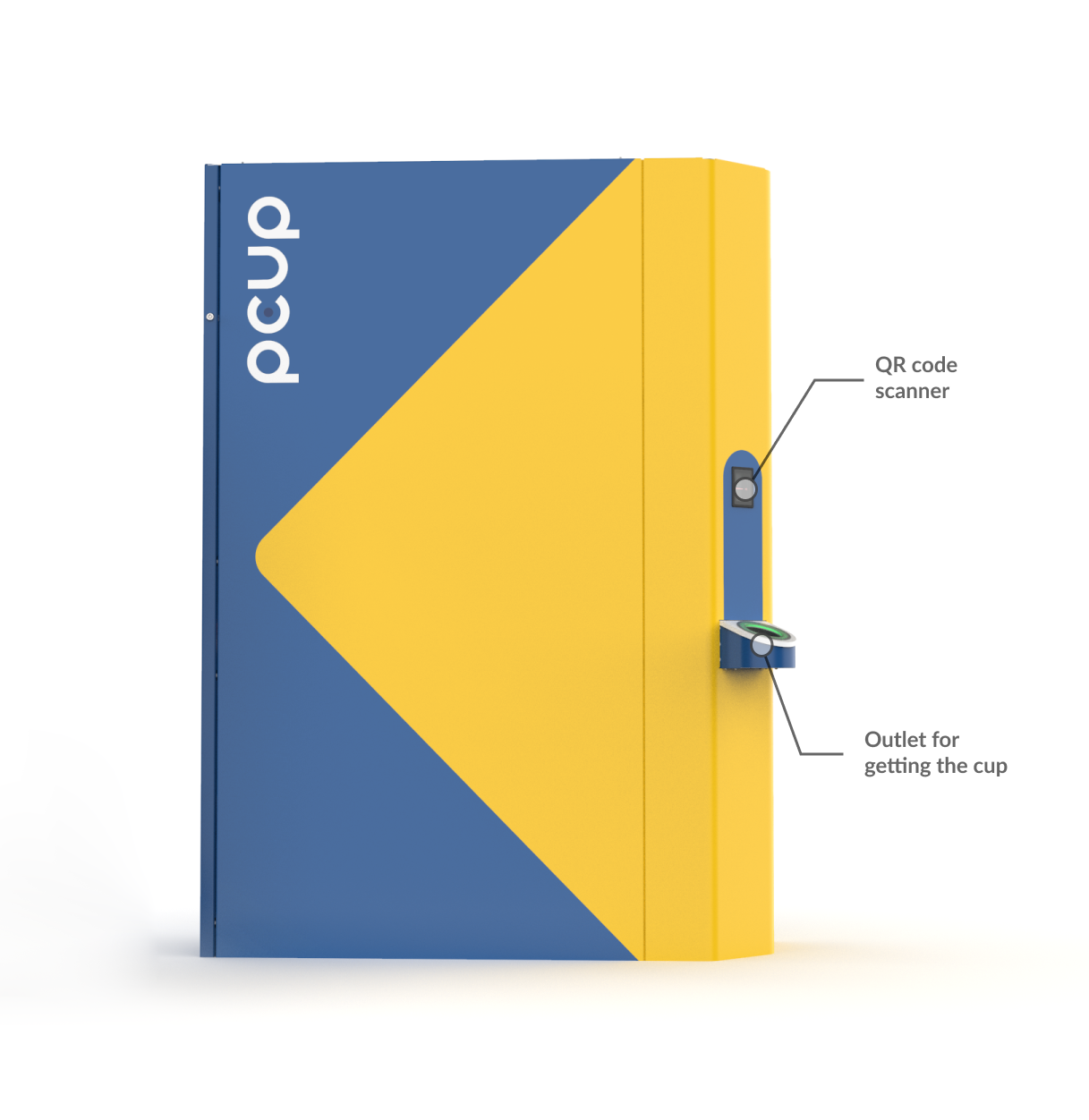

By walking towards the exit at the end of the event, the user approaches the device by the other side. This side is for the return of the cup. After scanning the RFID tag on the cup, the inlet turns green and user can drop the used cup.
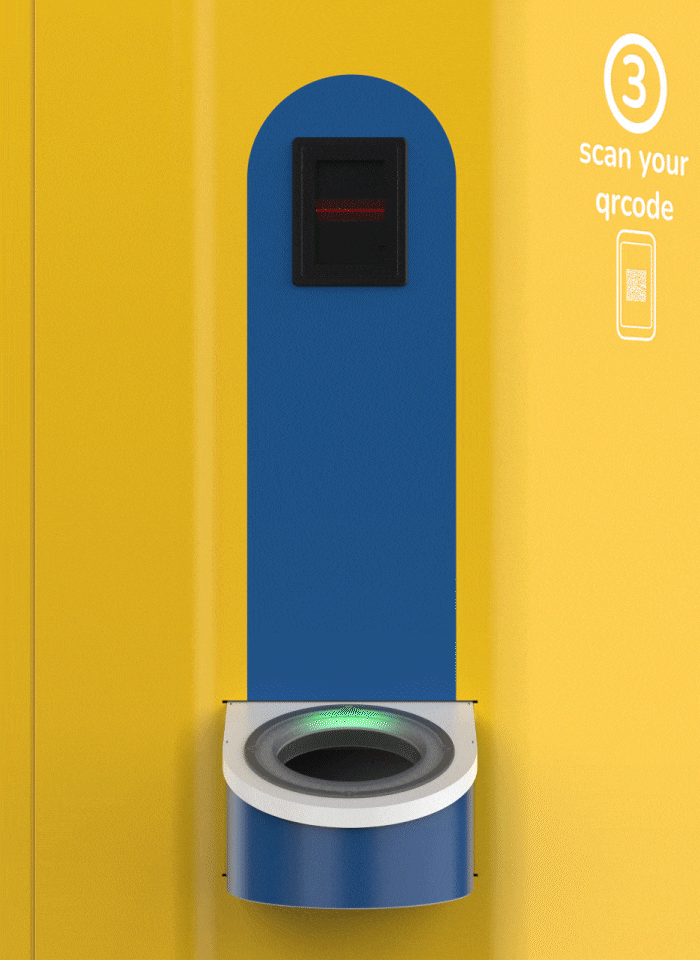
The dispenser is waiting for a QR code to be scanned.

After the QR code has been scanned, the dispenser validates the deposit and drops the cup.

On the cup return side, once the NFC tag of the cup is scanned, the ring turns green allowing the user to drop the cup and get the deposit back.
The design of the dispenser has largely considered the economic point of view in the selection of materials, their manufacturing processes and the selection of components. The structure consists mainly of standard square tubular profiles connected by common joints, while the chassis consists mainly of metal sheets blanked and bent in different ways.
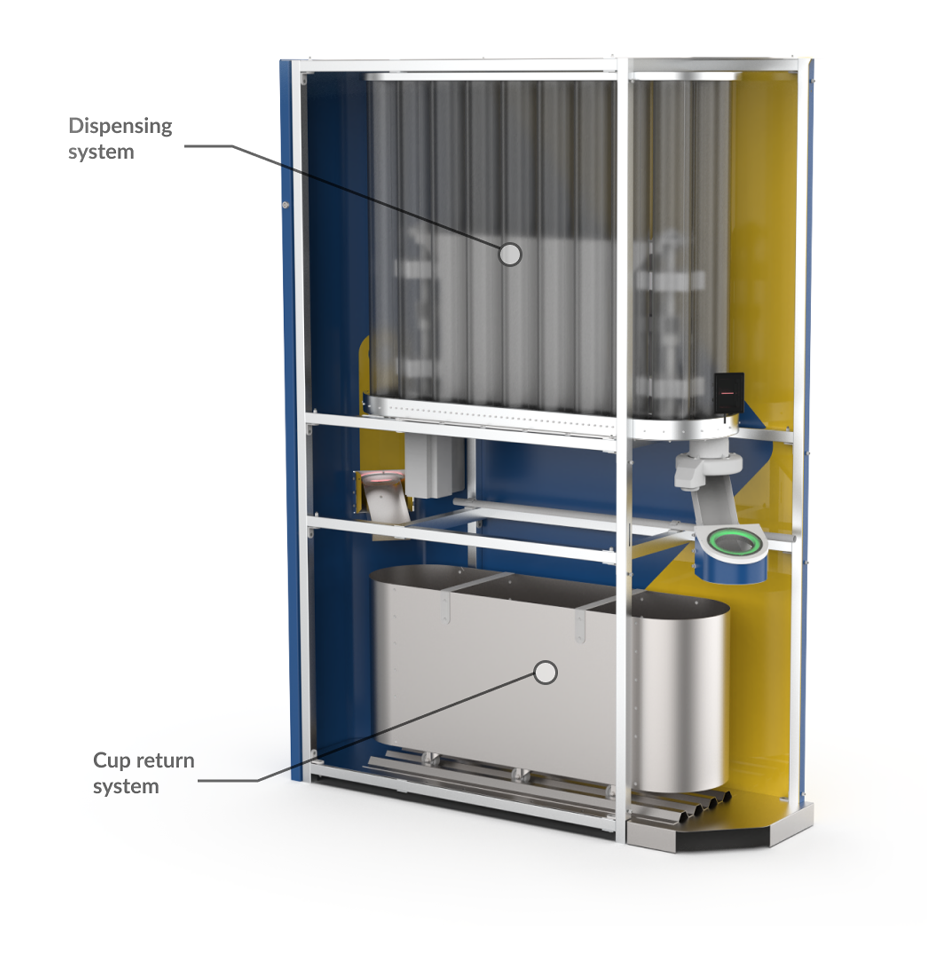
400 collapsed cups are stacked inside the PVC pipes which are able to slide on the roller conveyor belt and are moved by the stepper motor to reach the dispensing position where the dropping mechanism releases each cup one by one on request.
Most of the components, such as the stepper motor, the dropping mechanism, belt, bearings are standard components selected from manufacturers' catalogues, while other structural components are designed to be easily and cost-effectively manufactured.
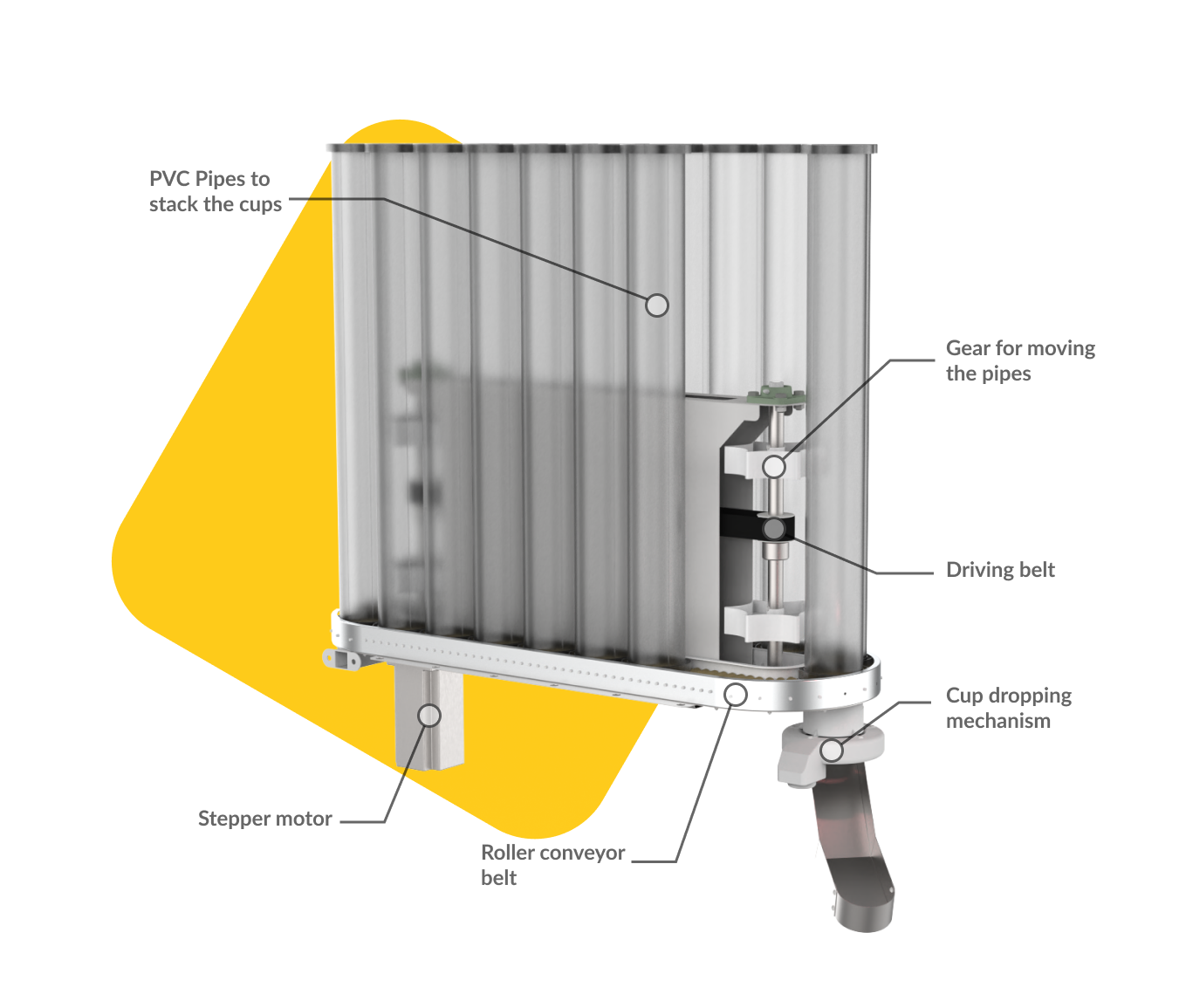
One of the sides of the chassis is hinged and act as door, secured with a lock, for maintenance purpose. By opening the door the operator can easily replace the empty pipes with the new ones, pull out the crate with the returned cups and access the box where the microcontroller and electronics are stored.
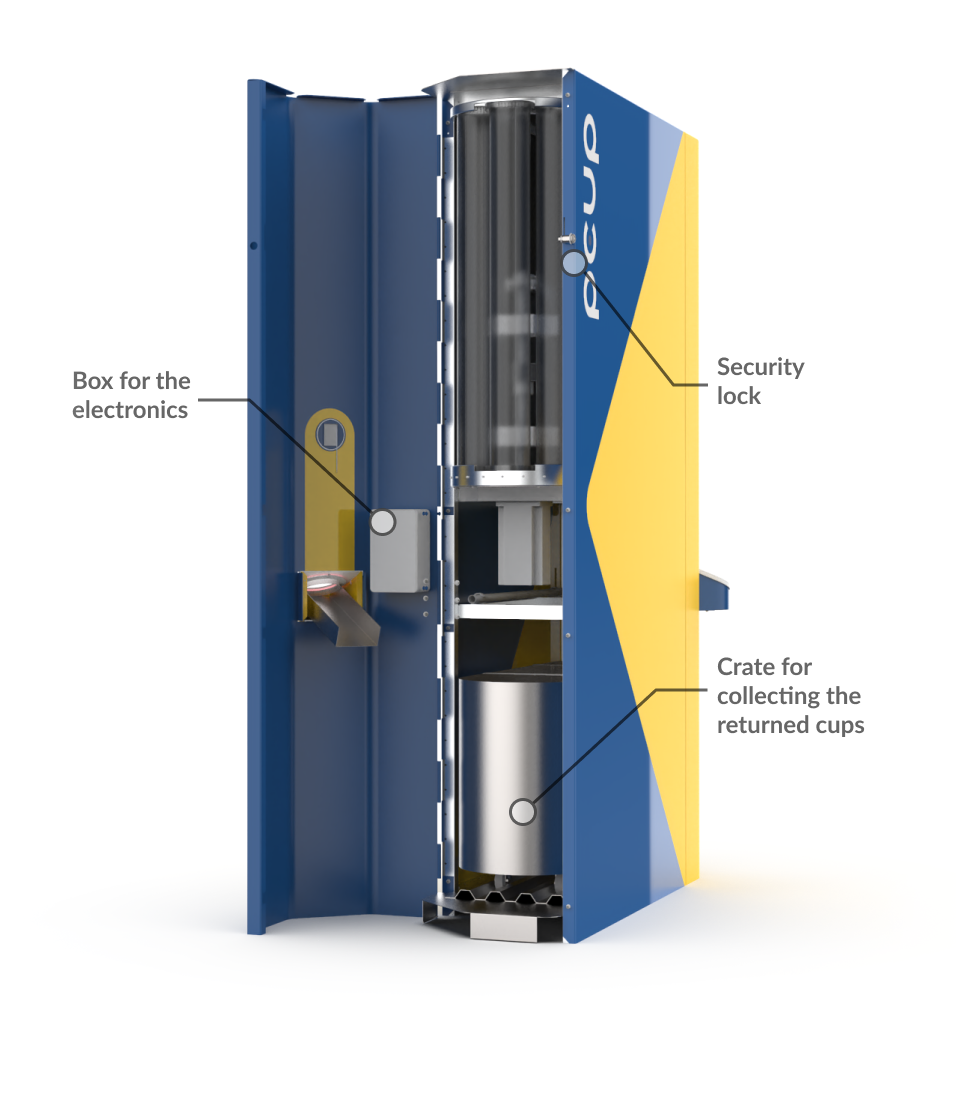
Based on the existing app, we designed the integration of the cup collection system with the deposit payment in the app. The user can thus top up his credit by paying with PayPal, GPay, Apple Pay or credit card (for the prototype we only simulated Apple Pay) and pay the required deposit amount for the cup. The app will then display the QR code that the user has to scan at the dispenser.
When returning the cup the user gets the deposit back on the app credit and can use it for future events or for buying drinks.
Take a look at the interactive prototype
PCUP
Product Development Design Studio 2
Politecnico di Milano
Project made with:
Davide Mammana
Pierre-Louis Soulié
2021